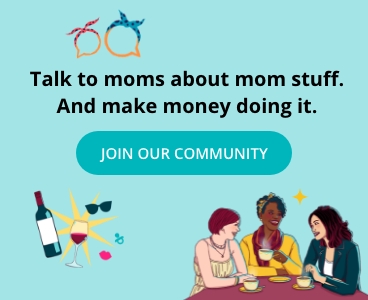I Posed as a Teen Girl on TikTok & Within Minutes Was Shown Disturbing Content on My FYP
On social media, sex, alcohol, and drugs are everywhere. And it isn’t just adults bombarded with these messages. Kids see plenty of content that may not be appropriate. Although we as parents do our best to prevent our kids from being exposed to adult themes too early, it happens, and this is particularly true when it comes to social media.
When we were younger, we couldn’t wait to get older so we could drive and make our own money. Today, kids want to grow up so they can access social media. Some sites have specific age requirements and so do some households. It's a tough decision for parents figuring out when they should allow their kids to access these apps, and a recent report by the New York Post may make parents think even harder.
Asia Grace posed as both a 14-year-old boy and a 14-year-old girl on TikTok to see what kind of content the algorithm would push to her For You Page, or FYP. She did not interact with anyone on the site. As it turns out, the content the site evidently wants our kids to view might make you uncomfortable.
More From CafeMom: Snapchat Launches 'Family Center' Feature To Help Parents Monitor Their Children's Usage
The questionable content appeared immediately on fake teenager Tiffany Marks' profile.
It may not come as much of a surprise, but Grace almost immediately began seeing a lot of alcohol content. That’s right — the app showed her video after video of people drinking. Surely no adult would think that's a good idea for teens, right? The potential hazards that come with this kind of risky behavior are not what parents want their kids to be watching.
Grace also saw clips about gun violence and videos from notorious bad boy Andrew Tate, who was actually banned from social media for his disturbing content promoting violence toward women, among other things.
It was the mental health content that opened Grace’s eyes.
Just minutes in, Grace began to see content from young women discussing their mental health. She linked a clip of a teenage girl in her car looking at the camera with a voiceover that says, “I have had the worst week of my life, and I needed you.” The sound is dubbed, but the text is her own.
“I’m actually happy my friends don’t realize how much I’m struggling right now, but it hurts realizing none of them know me well enough to notice,” she wrote.
Her struggle seems pretty on point for many girls her age, and it may seem like posting this kind of content is a healthy outlet, but experts disagree.
Research shows that mental health issues are more prevalent in teens who use social media.
The University of Utah recently reported that social media affects mental health. Jessica Holzbauer, a licensed clinical social worker at Huntsman Mental Health Institute, explained that smartphones, the vehicle many teens use for social media, are designed to create addiction.
“We get a dopamine release in our brain when we pick up our phone or log into social media,” she said. She explained that we are essentially priming our brains into thinking social media is a good thing while looking at our phones.
More From CafeMom: Influencer Claims 'What I Eat in a Day' TikTok Trend Is Dangerous, Here's Why
The issue with social media and teenagers isn’t always what they put out. It's what they are taking in.
Because social media is made up of so-called “influencers,” teens put a lot of faith in what these people are telling them. If they feed them ideas that they are not good enough or encourage risky behavior, teens will likely believe them.
According to a 2021 study by Rush University Medical Center, the influx of information is leading teenagers to brand themselves with various mental health issues like #Tourettes, #BDP (borderline personality disorder), #Bipolar, and #DID (dissociative identity disorder). This is all without a doctor’s diagnosis, and the trend is frightening.
Parents need to be involved.
Holzbauer warns parents to be vigilant in keeping up with their children’s online habits and noticing any changes in behavior. Yes, some positives come with social media, but do the negatives outweigh them? That is up to the parents to decide.
“If your child is starting to focus too much of their attention on social media at the expense of real-life interactions, parents should be concerned,” Holzbauer said. “At the very least, this should spark a conversation about the behaviors to ensure there aren’t more serious issues going on like bullying, anxiety, or other issues.”
Largely, what Grace observed posing as a teen on TikTok supports recent research into the often negative effects of social media on teenagers, girls in particular and further proves that as parents we need to be more discerning about what we allow our children to access online.
